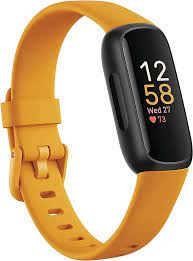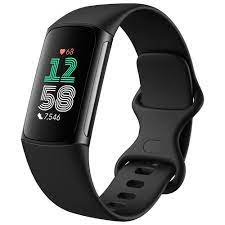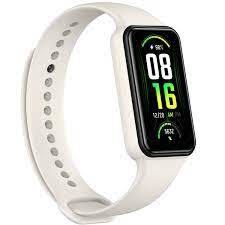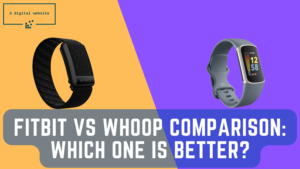Introduction:
In the ever-evolving world of fitness technology, wearable fitness trackers have become essential tools for individuals looking to monitor and improve their health and fitness levels. These devices have come a long way since their inception, offering advanced features and stylish designs seamlessly integrating into our everyday lives. In this article, we will explore the top three fitness trackers of 2024, delving into their standout features, pros, and cons to help you make an informed decision.
1. Fitbit Inspire 3: A Fusion of Style and Substance

The Fitbit Inspire 3 takes the top spot as a sleek and feature-packed clip-on fitness tracker. Designed to marry style with performance, this device offers a range of functionalities that will elevate your fitness routine. Let’s take a closer look at the pros and cons of the Fitbit Inspire 3.
Pros:
– Real-time heart rate monitoring: The Fitbit Inspire 3 provides accurate and continuous heart rate monitoring, allowing you to optimize your workouts and overall cardiovascular health.
– Sleep tracking: With the Inspire 3, you can track your sleep patterns, including the duration and quality of your sleep. This feature enables you to adjust your lifestyle and establish healthier sleeping habits.
– Intuitive interface: The Fitbit Inspire 3 features an easy-to-use interface that allows you to effortlessly navigate through your fitness data, set goals, and track your progress.
– Stylish design: This fitness tracker boasts a sleek and stylish design, making it a fashionable accessory that seamlessly blends into your everyday attire.
– Long battery life: The Fitbit Inspire 3 boasts an impressive battery life, allowing you to go for days without recharging.
Cons:
– Limited display: The Fitbit Inspire 3 has a small display, which may make it difficult to view detailed information such as text messages or notifications.
– Limited exercise modes: While the Inspire 3 offers a range of exercise modes, some users may find the selection to be limited compared to other fitness trackers on the market.
– Lacks built-in GPS: Unlike other fitness trackers, the Fitbit Inspire 3 does not have built-in GPS. This means that if you want to track your outdoor workouts accurately, you will need to carry your smartphone with you.
2. Fitbit Charge 6: Advanced Tracking for Proactive Health

The Fitbit Charge 6 is a powerhouse of advanced features designed to provide comprehensive health tracking. With real-time heart rate monitoring, sleep analysis, and an extended battery life, the Charge 6 is an ideal choice for individuals who prioritize proactive health management. Let’s examine the pros and cons of the Fitbit Charge 6.
Pros:
– Advanced heart rate monitoring: The Fitbit Charge 6 offers advanced heart rate monitoring capabilities, including tracking your heart rate zones during workouts and providing real-time alerts if your heart rate goes above or below your desired range.
– Sleep analysis with SpO2 monitoring: This fitness tracker is equipped with SpO2 sensors that can measure your blood oxygen levels, providing valuable insights into your overall health and sleep quality.
– Extended battery life: The Charge 6 boasts an impressive battery life, allowing you to use it for an extended period without needing to recharge. This is particularly advantageous for individuals who engage in long-duration activities or travel frequently.
– Water-resistance: With a water resistance rating of 50 meters, the Fitbit Charge 6 can be worn while swimming, showering, or engaging in various water activities without worrying about damage.
– Guided breathing sessions: The Charge 6 offers guided breathing sessions to help you manage stress and improve your overall well-being.
Cons:
– Limited smartphone connectivity: Some users have reported issues with the Fitbit Charge 6’s Bluetooth connectivity, particularly when trying to sync with their smartphones. This may result in delayed or inconsistent data synchronization.
– Bulky design: Compared to other fitness trackers, the Fitbit Charge 6 has a slightly bulkier design, which may not appeal to individuals who prefer a more discreet and minimalist look.
– Limited third-party app integration: While the Fitbit app offers a range of features and insights, the Charge 6 has limited integration with third-party apps and services, which may be a drawback for individuals who rely on other platforms for their fitness tracking needs.
3. AmazFit Band 7: Budget-Friendly Brilliance

For those seeking an affordable yet feature-rich clip-on fitness tracker, the AmazFit Band 7 stands out as a remarkable choice. Offering a range of functionalities at a budget-friendly price point, this device proves that staying fit can be both accessible and stylish. Let’s explore the pros and cons of the AmazFit Band 7.
Pros:
– Affordable price: The AmazFit Band 7 offers excellent value for money, making it an ideal choice for budget-conscious individuals who still want access to advanced fitness tracking features.
– Comprehensive activity tracking: With the AmazFit Band 7, you can track your steps, distance traveled, calories burned, and active minutes throughout the day. This allows you to gain a comprehensive understanding of your activity levels and make informed decisions about your fitness routine.
– Sleep monitoring: The Band 7 provides sleep monitoring features, allowing you to track the duration and quality of your sleep. This can help you identify patterns and make adjustments for better sleep hygiene.
– Notifications and alerts: The Band 7 can receive notifications for calls, messages, and app alerts, keeping you connected and informed without the need to constantly check your smartphone.
– Stylish design: With its sleek and modern design, the AmazFit Band 7 can be worn as a stylish accessory that complements any outfit.
Cons:
– Limited workout modes: While the AmazFit Band 7 offers basic tracking for a variety of activities, it may have a limited selection of workout modes compared to other fitness trackers. This could be a drawback for individuals who engage in specific or niche sports.
– Inconsistent heart rate monitoring: Some users have reported that the heart rate monitoring feature of the AmazFit Band 7 can be inconsistent and less accurate compared to other fitness trackers on the market.
– Limited app ecosystem: The AmazFit app, which pairs with the Band 7, has a more limited ecosystem compared to other fitness tracking platforms. This may result in a less robust user experience and fewer options for customization.
Conclusion:
As we reach the midpoint of 2024, the fitness tracking landscape is filled with innovative and versatile clip-on fitness trackers. The Fitbit Inspire 3, Fitbit Charge 6, and AmazFit Band 7 are exceptional devices that cater to a range of preferences and budgets. Whether you prioritize style, advanced tracking features, or affordability, these devices are designed to seamlessly integrate into your active lifestyle, empowering you to achieve your fitness goals.
FAQs:
1. Are fitness trackers waterproof?
Many fitness trackers come with water resistance ratings, allowing you to wear them while swimming, showering, or engaging in various water activities. However, it is essential to check the specific water resistance rating of the device before submerging it in water.
2. Can fitness trackers track multiple sports or activities?
Yes, most fitness trackers offer multiple workout modes, allowing you to track and analyze data for a variety of sports and activities. These modes can range from running and cycling to yoga and swimming, enabling you to tailor your tracking to your specific needs.
3. Can fitness trackers accurately measure calories burned?
Fitness trackers use algorithms and sensors to estimate calories burned based on factors such as heart rate, movement, and other inputs. While they provide a general overview of your calorie expenditure, it’s important to note that these calculations may not be 100% accurate for everyone.
4. Can fitness trackers monitor sleep quality?
Yes, many fitness trackers offer sleep tracking features that monitor your sleep duration, sleep stages, and even provide insights into sleep quality. These features can help you understand your sleep patterns and make adjustments for better sleep hygiene.
5. Do fitness trackers require a smartphone to function?
While most fitness trackers can function independently, syncing them with a smartphone allows you to access more in-depth data analysis, receive notifications, and benefit from additional features like GPS tracking. However, basic tracking functions can be used without a smartphone connection.

